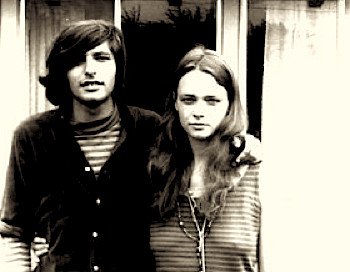
Anne Waldman on Lewis Warsh and the Angel Hair Anthology
From Jacket #16 (March 2002)

I met Lewis Warsh at the Berkeley Poetry Conference [in 1965] and will always forever after think we founded Angel Hair within that auspicious moment. Conflation of time triggered by romance adjacent to the glamorous history-making events of the conference seems a reasonable explanation. Perhaps Angel Hair was what we made together in our brief substantive marriage that lasted and had repercussions. And sped us on our way as writers. Aspirations to be a poet were rising, the ante grew higher at Berkeley surrounded by heroic figures of the New American Poetry. Here was a fellow New Yorker, same age, who had also written novels, was resolute, erudite about contemporary poetry. Mutual recognition lit us up. Don’t I know you?
Summer before last year at Bennington where I’d been editing SILO magazine under tutelage of printer-poet Claude Fredericks, studying literature and poetry with Howard Nemerov and other literary and creative faculty, I was encouraged by Jonathan Cott — comrade I’d known since high school — to visit radical Berkeley and check out the poetry convention. It was certainly going to be more experimental than what I was exposed to at Bennington. A few students had been making queries about why no one taught Williams, Pound or Gertrude Stein, let alone H.D. I was trying to get the school to invite Allen Ginsberg to read. Jon and I had been exchanging work, he’d sent copies of Ted Berrigan’s C magazine jamming my little rustic p.o. box. He’d known Ron Padgett at Columbia University. We were on to the New American Poetry and the poetry net was widening, inviting.
My mother’s connection to poet Anghelos Sikelianos — he was her father-in-law over a decade — had decidedly informed my upbringing and aspirations to poetry. Frances was part of the utopian Delphic Ideal community in Greece in the 1930s spearheaded by Eva Palmer Sikelianos with links to Isadora Duncan, Jose Clemente Orozco, others, that had a humanistic brave notion that art, and Greek drama in particular, could ‘save mankind.’ There was encouragement in our bohemian household towards any act of poetry.
[read more of this article]